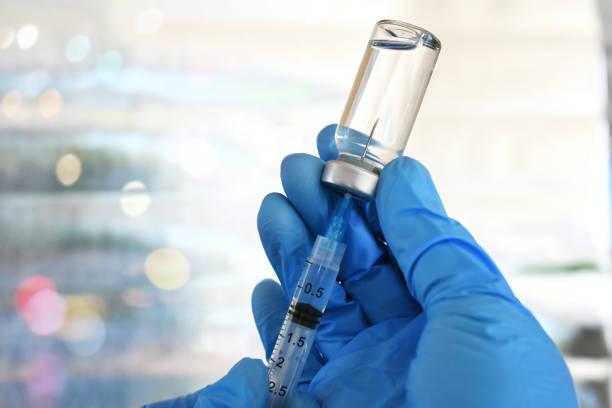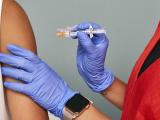Two doses of the recombinant herpes zoster (HZ; shingles) vaccine (RZV) are effective even for people who previously received the live vaccine (ZVL), per a study among US Medicare recipients published today in the Annals of Internal Medicine.
Researchers from the University of North Carolina at Chapel Hill led the study, which estimated the 1-year effectiveness of RZV, which is marketed under the brand name Shingrix, in a 20% random sample of Medicare beneficiaries aged 65 and older who hadn't previously received it. The analysis used target trial emulation, accounting for previous receipt of ZVL and immunocompromised status (weakened immune system), in 2018 and 2019.
Live vaccine discontinued
The first analysis emulated 12 consecutive trials including 3.5 million people that estimated the vaccine effectiveness (VE) of one or more RZV doses versus none. The second analysis used the same methods to estimate the VE of two versus one RZV doses in 10 trials involving 146,000 people.
Live vaccines are contraindicated in persons with immunocompromising conditions, who are also at high risk for HZ.
The primary outcomes were shingles, HZ ophthalmicus (serious viral infection of the eye), and postherpetic neuralgia (severe pain along the path of a nerve). Shingles is caused by reactivation of latent varicella zoster (chickenpox) virus, primarily in adults aged 50 and older.
Recombinant vaccines use a genetically engineered pathogen to produce a specific protein or antigen, leading to an immune response.
"Live vaccines are contraindicated in persons with immunocompromising conditions, who are also at high risk for HZ," the investigators wrote. "In addition, immunogenicity studies suggest that ZVL-induced immunity is not durable beyond approximately 5 years. Furthermore, the Centers for Disease Control and Prevention (CDC) did not recommend a booster dose of ZVL."
RZV was licensed in 2017, but people with weakened immune systems were excluded from clinical trials. The CDC recommended RZV over ZVL beginning in 2018, and the latter was discontinued in 2020.
Live vaccine recipients should receive the recombinant version
In the first analysis, VE against any HZ outcome was 56.1%, with similar VEs in patients with healthy immune systems (56.5%) and those with weakened immune systems (54.2%) and among all participants aged 65 to 80. In previous ZVL recipients, VE was 51.8%, compared with 57.7% among nonrecipients.
The long-term effectiveness and safety of this vaccine, and others formulated with the novel saponin-based adjuvant, remain to be elucidated in future studies.
The second analysis found that receipt of two RZV doses had a relative VE of 67.9% against any HZ outcome compared with a single dose. In addition, the second dose was similarly effective, regardless of whether it was given within the CDC–recommended window or within an extended period.
The study authors said that the findings can be used to inform the CDC’s recommendations on RZV in immunocompromised people and those who previously received ZVL.
"Recombinant zoster vaccine is effective in older adults, including immunocompromised adults, and 2 doses were more effective than 1," they concluded. "Prior ZVL recipients should be revaccinated with RZV."
"The long-term effectiveness and safety of this vaccine, and others formulated with the novel saponin-based adjuvant, remain to be elucidated in future studies," they added.



















